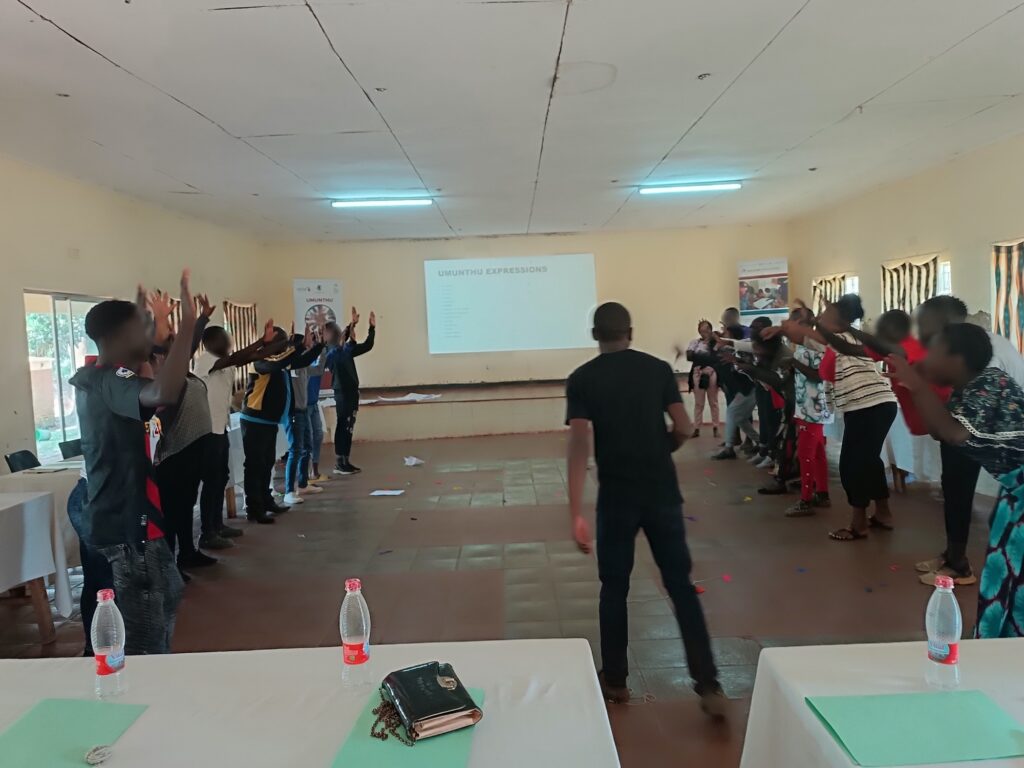The LGBTI community in Malawi is among the key populations exposed to various forms of abuse and discrimination. The Umunthu Healthcare Workers project was set to minimize some of these burdens with a key emphasis on changing the attitudes of healthcare workers so as to create a conducive environment that is free of discrimination regardless of sexual orientation in health service provision. The workshops that this project has utilized, have not only empowered healthcare workers to champion and uphold access to health services for all but also the LGBTI to defend and fight for their rights within and beyond the health sector.
Representatives of the LGBTI people were encouraged to revamp or form networks where they would regularly meet to unearth some of the issues impeding their access to health services in their areas. These concerns were later presented to healthcare champions who would manage the concerns, advocate, or consult responsible personnel.
During one of the workshops that we conducted in Dedza, one of the health personnel disclosed that there are no records of LGBTI cases at his facility in Chongoni area. He further took up the initiative to establish why his facility has no records of the same and consulted his colleagues at Dedza District Hospital if there are records of any cases that originate from Chongoni area. It was discovered that some LGBTI people were traveling a long distance to access health services like ART drugs and treatment for various STIs. An initiative was executed to transfer these records to Chongoni Health Center which is within their nearest proximity. This led to the formulation of a network in the area comprised of 76 LGBTI people who started to access health services at their nearest health facility due to the assurance that was generated of a conducive environment that is free from discrimination within their context.
“At Chongoni area, we managed to have a newly established network of 76 new members who started to access health services at their nearest health facility after peer education and intervention of one of the healthcare workers,” confirmed one of the LGBTI Peer leads in Dedza.
Another LGBTI peer lead in Dedza narrated that she personally reaches out to some skeptical individuals who are on the verge of defaulting uptake of ART treatment for fear of discrimination. She said that she has had an arrangement with the ART department at Dedza District Hospital to fast-track and encourage LGBTI members who are not consistent with their uptake of ART drugs at the facility by personally facilitating receipt of the medicine at the patient’s home. This has helped the hospital to reclaim some defaulters of the treatment due to the assurance of a conducive and safe space that this special intervention utilized.
Apart from these breakthroughs in the health sector, the knowledge that was shared about the Umunthu philosophy, which upholds respect for humanity and inclusion for all, has been applied by the LGBTI people to advocate for their rights in other spaces. One of the LGBTI people in Dedza said that she has managed to convince some women in her village to admit her to their Village Savings and Loans (VSL) group regardless of her sexual orientation. Before her engagement in the project, women in her area refused to admit her to their VSL because she was lesbian.
In Chikwawa, the LGBTI people have been able to challenge their local leaders and communities on issues of inclusion for all through special awareness meetings. The LGBTI network in the district observed that access to health services was not only impeded by the attitude of the healthcare workers but all members of the community around them who were perpetuating self-stigma and discrimination.
“Through the community meeting that we had; Parents are no longer isolating us due to our sexual orientation. They now have a better understanding of the LGBTI community and the issues that we face and they now empathize with us to an extent of intervening when we face discrimination,” narrated one of the LGBTI people in Chikwawa district.
She further said that the Umunthu Healthcare Workers project has assisted them in building strong relationships with healthcare workers who are willing to spare their time and accompany them in the awareness meetings. The presence of these personnel assists in boosting the credibility of their messages because they help community members to have an expert understanding of the different sexual orientations with biological evidence that it is an inborn phenomenon.
These are among many initiatives that have been executed by the LGBTI people in Dedza and Chikwawa districts after their engagement with the six-year project that started in 2016 and ended in 2022. This has left sustainable and significant changes in the lives of many individuals, groups, and communities in myriad ways.



